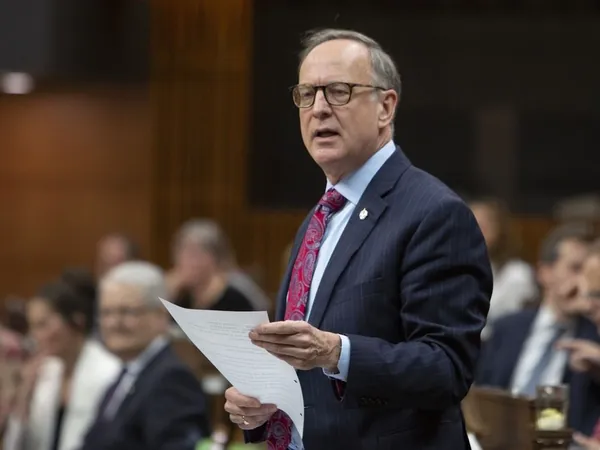
Controversy Arises in Canada Over Motion to Recognize Palestinian Statehood
2024-09-25
OTTAWA — In a bold departure from longstanding Canadian foreign policy, the Liberal government's parliamentary secretary on foreign affairs, Rob Oliphant, has come forward to defend a recent motion aimed at exploring the possibility of recognizing Palestinian statehood. This move has sparked intense debate within Canadian political circles, highlighting the complexities of Canada's role in the Middle East conflict.
On Tuesday, Oliphant, a Member of Parliament from Toronto, voted alongside members of the New Democratic Party (NDP) and Bloc Québécois in a foreign affairs committee meeting. The motion calls for the committee to 'immediately study the issue of how the Government of Canada can advance the recognition of the State of Palestine within a two-state solution.'
While supporters of the motion argue that it represents a necessary evolution in Canada’s approach to the Israel-Palestine conflict, critics warn that it could disrupt diplomatic relations with allies such as the United States and members of the G7. Conservative Party foreign affairs critic Michael Chong expressed concerns that unilateral recognition could undermine Canada’s position internationally, suggesting the move could damage Canada’s credibility as a mediator in the region.
The Centre for Israel and Jewish Affairs, a notable advocacy group, condemned the motion as 'reckless,' arguing that it jeopardizes Israel’s security and undermines the peace process. Liberal MP Marco Mendicino added that Canada's foreign policy should focus on holding Hamas accountable instead of recognizing it as a governing authority.
In response to the backlash, Oliphant emphasized the motion's intent to gather information and suggested that Prime Minister Justin Trudeau has indicated flexibility in recognizing Palestinian statehood. Trudeau had previously stated that such recognition does not necessarily require the conclusion of negotiations for a two-state solution. Instead, he hinted at the possibility of recognizing Palestine as a strategic move to foster peace in the region.
This shift in Canadian policy comes at a sensitive time, as it coincides with the upcoming one-year anniversary of the devastating October 7 attacks by Hamas on Israel, which claimed over 1,200 Israeli lives and left significant casualties among both combatants and civilians in Gaza during the ensuing conflict. The ongoing violence has raised urgent calls from various political factions in Canada, including the NDP, which argues for immediate recognition of Palestinian statehood.
As escalating tensions and violence continue to ripple through the region, with over 40,000 Palestinians reportedly dead as per the Gaza Health Ministry, Canadian officials assert their commitment to a two-state solution as the path to lasting peace in the Middle East. International Development Minister Ahmed Hussen voiced optimism about the parliamentary committee’s findings, underscoring that the Canadian government remains open to adapting its stance based on the evolving political landscape.
The tensions surrounding Canada's consideration of recognizing Palestinian statehood illustrate not only the domestic political struggles but also the profound implications for international relations and peace efforts in one of the world's most enduring conflicts. As the situation develops, all eyes will be on Ottawa to see how this controversial motion unfolds in the context of global diplomacy and humanitarian priorities.









 Brasil (PT)
Brasil (PT)
 Canada (EN)
Canada (EN)
 Chile (ES)
Chile (ES)
 España (ES)
España (ES)
 France (FR)
France (FR)
 Hong Kong (EN)
Hong Kong (EN)
 Italia (IT)
Italia (IT)
 日本 (JA)
日本 (JA)
 Magyarország (HU)
Magyarország (HU)
 Norge (NO)
Norge (NO)
 Polska (PL)
Polska (PL)
 Schweiz (DE)
Schweiz (DE)
 Singapore (EN)
Singapore (EN)
 Sverige (SV)
Sverige (SV)
 Suomi (FI)
Suomi (FI)
 Türkiye (TR)
Türkiye (TR)